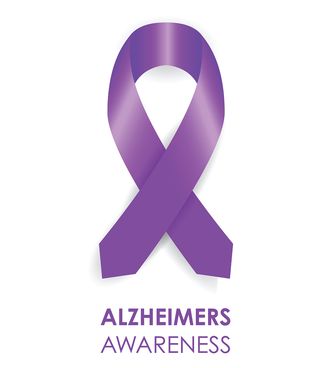Pat Summitt, arguably the greatest college basketball coach of all time, would have been described by those who knew her as a focused, opinionated leader and an athlete with an uncontrollable desire to compete and win. In 2012, I had the opportunity to meet Pat at the National Alzheimer’s Association Dinner in Washington D.C. She was as determined as ever to fight the disease that had taken her memory starting at the age of 58, but she stood back, timid behind her son, who spoke for and guided his mother throughout the evening.
Glen Campbell may be the most powerful public reminder of a haunting, stigmatic disease. Diagnosed in 2011, Campbell brought Alzheimer’s and dementia awareness to the forefront of political debate by publicly announcing his diagnosis and continuing to appear in public as his memory faded away. To date, Campbell can remember very little about those around him, but his wife states that he can still play the guitar.
 Over the last several years, we watched and read celebrity gossip sites with great interest as Robin Williams seemed to struggle with various medical diagnoses, from mental illness to Parkinson’s disease. Robin, unbeknown to most, had been planning to enter a care facility when he died. It was only after Robin passed away that doctors found he had lived with Lewy Body Dementia.
Over the last several years, we watched and read celebrity gossip sites with great interest as Robin Williams seemed to struggle with various medical diagnoses, from mental illness to Parkinson’s disease. Robin, unbeknown to most, had been planning to enter a care facility when he died. It was only after Robin passed away that doctors found he had lived with Lewy Body Dementia.
Certainly, the loss of a person whose life is as large and bright as that of Robin Williams ripples through a culture. His wife’s bravery in coming forward to speak of his silent, undiagnosed struggle with Lewy Body Dementia opened the door for us and our clients to ask questions about the growing problem of dementia plaguing our society. As November is Alzheimer’s and dementia awareness month, it is a good time for us to take a look at this epidemic and ask ourselves what we can do as attorneys, community members and family members of those who suffer with the disease.
The facts and figures surrounding Alzheimer’s and dementia are staggering. Currently, dementia stands as the sixth-leading cause of death in the United States, and it is the only cause of death in the top 10 that cannot be prevented, cured or slowed. One in three seniors die with some form of dementia, and two-thirds of these sufferers are women. Despite the widespread growth of Alzheimer’s and dementia, only 45 percent of those who suffer are currently correctly diagnosed with the disease.
Not to be overshadowed are the costs Alzheimer’s is inflicting on our healthcare system. In 2015, dementia care will cost our nation $226 billion. By 2050, these costs are predicted to rise as high as $1.1 trillion. With several state Medicaid programs struggling to stay afloat, and the number of institutionalized sufferers increasing daily, the United States is staring in the face of a major healthcare crisis.
As elder care attorneys, we must inform our clients of the fast-growing effects of Alzheimer’s and dementia, of the ability of these diseases to strike at younger ages, and of the complete disregard the diseases have for overall health and socioeconomic lines. While it is important that legal advice is sought immediately upon diagnosis of a dementia-related disease, due to the lack of proper diagnosis, it is also essential that every family move forward with estate plans at younger ages. Having a proper plan in place can in small part reduce the grueling toll this disease has on families.
As strong, educated voices for the elderly and aging populations, we can take active roles in requesting that Congress fund the National Alzheimer’s Plan and hold our elected officials accountable for their actions as science moves forward in seeking a cure for this disease. In honor of Alzheimer’s Awareness Month, the National Alzheimer’s Association is asking all people to sign a petition to all presidential candidates in the next election asking that they announce their plans to fund research for this disease. The petition is available on their website at act.alz.org.
As a member of the Lawyers with Purpose community, it brings me such joy to hear the stories of our members and the countless ways we give back to our local communities through volunteerism and financial support. Continuing our personal support for funding the fight against Alzheimer’s is an invaluable way for us to give back. As November is Alzheimer’s Awareness Month, there is no better time to ask ourselves what we can do, as individuals, as attorneys and as loved ones of those who suffer, to help find a cure for Alzheimer’s and dementia.
If you want to experience first hand what it's like to be a Lawyers With Purpose member, and feel the synergy and community, join us this February 22nd – February 26th for our Tri-Annual Practice Enhancement Retreat in Florida. Click here for the full agenda and reserve your spot today. We're filling seats quickly and early bird pricing ends soon so grab your spot now!
Kimberly M. Brannon, Esq., Legal-Technical and Software, Lawyers With Purpose



Add a Comment